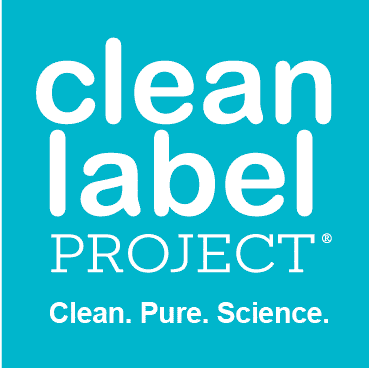An interview with Agatha Achindu, Founder of Yummy Spoonfuls
Agatha Achindu is a wellness entrepreneur, speaker, and educator who specializes in helping American families thrive, by transforming the way they live and feed their children. As the founder of Yummy Spoonfuls, a line of fresh-frozen organic food for kids, she is devoted to making healthy food convenient and accessible for busy parents and families. A Certified Integrative Nutritionist and Wellness Coach, she furthers her mission by building a brand that amplifies her message of whole living for modern times.

A voice of authority in her field, Agatha has appeared in notable media outlets such as The Today Show, CNN, CBS, Forbes, Fortune, and People Magazine, and is a regular contributor to the Washington Post. A sought-after speaker, she is known for delivering passionate talks on a variety of topics, including organic food and farming, children’s health and nutrition, business development, women’s empowerment, and more. As a married mom of three, her wellness empire represents what it means to live a whole, full, and vibrant life that nourishes the mind, body, and soul.
1. Agatha, you have done a tremendous amount of work leading people on the path of good health. What does “good health” mean to you?
Agatha Achindu: When I think of health, I am reminded of this quote taken from the constitution of the World Health Organization (WHO) “Health is a state of complete physical, mental and social well-being and not merely the absence of disease or infirmity” (WHO, July 22nd 1946). My motto is “eat, love and be happy.” For the last 25 years, I’ve helped families do just that – transforming relationships with food and self – and restoring total wellness, for a happier life because it takes the whole person – mind, body and spirit to experience true health.
Good health to me is taking good care of both the physical and the mental being. Physically, it is important to provide the body with the nutrients (good quality, wholesome foods, free of harmful toxins and preservatives) it needs to fully thrive, food and drinks that sustain health and getting enough sleep to allow the body to rest, in addition to consistent physical activity. Mentally, a sound mind is so critical to our overall health, it is important to find tools that help you manage stress, yoga, spiritual guidance, religious fellowship, fostering social relationships, (humans are social creatures, even the most introverted among us finds comfort in the company of likeminded people, it is critical during this Covid-19 season to look for ways to continue to stay in touch with love ones via all available online means). Exercise is also another key component, physical activity allows your brain to release endorphins which help to lift your mood and also give you energy. Regular exercise can also help you to sleep better and feel more at one with the whole you.
2. What do you think the barriers are for all communities to access the healthy kinds of food you are talking about?
Agatha Achindu: Oh goodness, there is a multiplicity of issues Jackie, but I will say financial means and awareness are my top two. Healthy food is expensive, we live in a society where a raw apple is more expensive than French fries despite the fact that the equivalent size in fries contains more labor and ingredients, cut into fries, fried in oil, etc. You would think all these extra ingredients would add to the price but that is not the case. Another example, water is more expensive than soda, if you are on a tight budget there is no way you want to buy a 16 oz bottle of water for $2.00 when you can buy a gallon of soda for .99 cents, or buy an apple for $2 when you can get a salty high-calorie box of fries for $0.99 cents.
When you live in a community that doesn’t have a real grocery store, the cost of transportation to the grocery store adds up making grocery more expensive and a huge inconvenience. Time is also a big factor, lots of parents are working multiple jobs to make ends meet, they end up settling for what’s available rather than make the long drive to the grocery shop; then have to find time to cook so they make do with what they have handy, which usually are the junk food in the fast-food locations in their neighborhoods. In so far as the lack of awareness is concerned, it is difficult to make healthy food choices when there is a lack of adequate nutrition knowledge and the absence of appropriate social support for healthy living.
3. How do you see communities coming to the table to address these barriers? What role do local governments play? The federal government? Food Brands?
Agatha Achindu: There is such a huge misconception out there Jackie that leaves me totally frustrated, often when I am talking about the issue of food insecurity. The first assumption is related to food stamps and our underserved communities, though that is another huge issue especially at this period of Covid-19 where so many children are going without food. There are communities with people working two to three jobs, making decent pay, but they don’t have easy access to a real grocery store, and as such healthy eating becomes almost impossible. We all know that access to healthy food is key and that can’t happen when you have to drive over 15 miles to make that happen.
Community:
I can’t even begin to emphasis how important it is for communities to go out and get involved in their local politics, go to your statehouses and demand inclusive food polices, vote into office legislators in your communities that support values that are important to you and your communities, vote out of office representatives that do not support those values.
Local Government:
We need our local representatives to promote policies that support healthy diets, reduce hunger, improve food access and affordability, uphold the rights and dignity of food and farm workers, increase transparency, improve public health and fight for equal rights. You can’t truly represent a state when not everyone has equal access to something as basic as healthy foods.
Federal Government:
Enact into law policies that support all communities. The farm bill comes up every 5 years, we need subsidies to encourage and support retailers to open markets in rural areas where otherwise they won’t, funding for educational programs about nutrition and health, there are many but these too will greatly improve the retail food environment to make healthier foods more accessible in underserved communities. This is one of a myriad of strategies that can support individuals and families in improving diet and may lead to preventing or reducing obesity and other nutrition and lifestyle-induced chronic diseases.
Big food manufacturers and retailers get a huge tax break from donating food to food pantries, we need a law to mandate the quality of food that gets donated, and we can’t keep giving overly processed junk foods that keep communities in sickness care.
In underserved communities, what you find is an abundance of fast-food restaurants that serve nutritionally-defunct foods and we wonder why one out of eleven Americans now has diabetes. We need better laws to mandate better health for all.
Food Brands:
It is irresponsible of some brands to continue to bring food to market that makes us sick, the standard American diet (SAD) is devoid of health-giving nutrients. It is packed with refined sugar & alternative sweeteners, junk foods (synthetic chemicals, neurotoxic food dyes, and oxidized vegetable oils). The 4 top leading causes of death in the United States today are all directly connected to diet, 70% of Americans are on daily medications. In this most affluent, physician-filled country in the world, chronic and deadly diseases continue to grow and there is a reason for that. Not all foods are created equal, food will either feed disease or give health, we need to see more foods that give us good health.
Let’s take for example sugar, there is no one in America today that doesn’t have an understanding of the science-based documented evidence of the risks associated with refined sugar, yet sugar is everywhere; especially in kids’ food. Sugar is the second ingredient in baby yogurt, (this is food labeled for 6 months old baby) with a whopping 4 tsp sugar in a 4oz tub and we wonder why children as they grow to want nothing that isn’t sweet; they have slowly become sugar junkies. This is why it was so important to me that we bring to market the very first pancake for kids made without a drop of processed sugar. Yummy Spoonfuls pancakes are sweetened with whole fruits, it is the number 1 selling kid pancake in Walmart stores and has zero refined sugar added to it. We don’t need to kill our children to make a profit, we as brands need to be more responsible.
“My motto is “eat, love, and be happy.” For the last 25 years, I’ve helped families do just that”
4. What organizations do you find to be especially impactful in your community of Atlanta? What national organizations do you like?
Agatha Achindu: There are so many organizations doing wonderful work, making sure our underserved communities have food to eat, from Feed the Children to local orginzations and food pantries trying to solve the symptoms of inequitable laws in our society. What I think we need most urgently are laws in place to make sure so many in our communities don’t have to depend on these outlets as a norm. Hope Global Forum is a national organization that brings thought leaders together to address systemic racism and address ways to fix the root causes through policy changes. We truly need better laws for all Americans, that is where progress is. Another organization that I love is Food Policy Action, they actually keep a scorecard on how our local legislators vote on the Farm Bill to keep food safe, healthy and affordable – giving us the power to hold our legislatures accountable.
5. What is one thing that someone reading this can do today to help increase access to healthy foods within their own community?
Agatha Achindu: VOTE!!!!!!
6. What would you hope that the food industry changes to address the issues that have been highlighted during this difficult time?
Agatha Achindu: Top on my list is to prioritize the health of consumer over profit.
7. Do you have any tips about how to talk to friends and community about food insecurity and what we as individuals can do?
Agatha Achindu: As of 2018, 37.2 million people live in food-insecure households, which is 1 in 9 Americans. Food-insecurity is a prevalent issue in our society, it impacts all communities. Though hunger and food-insecurity are related they are not the same thing. Food insecurity refers to not having reliable, consistent access to enough food to live a healthy life, either due to lack of financial resources or easy access to the grocery stores. That said, one of the most important things we can all do is make sure programs like SNAP (Supplemental Nutrition Assistant Program) continue to get the funding they need. Secondly, fight to make sure all neighborhoods in our communities have a real grocery store. Thirdly, if time permits, volunteer at your local food pantry, and start a conversation as to how you can help, you might be surprised to see a few of your neighbors there waiting in line, speak from your heart, don’t offer what you believe is help, ask.

